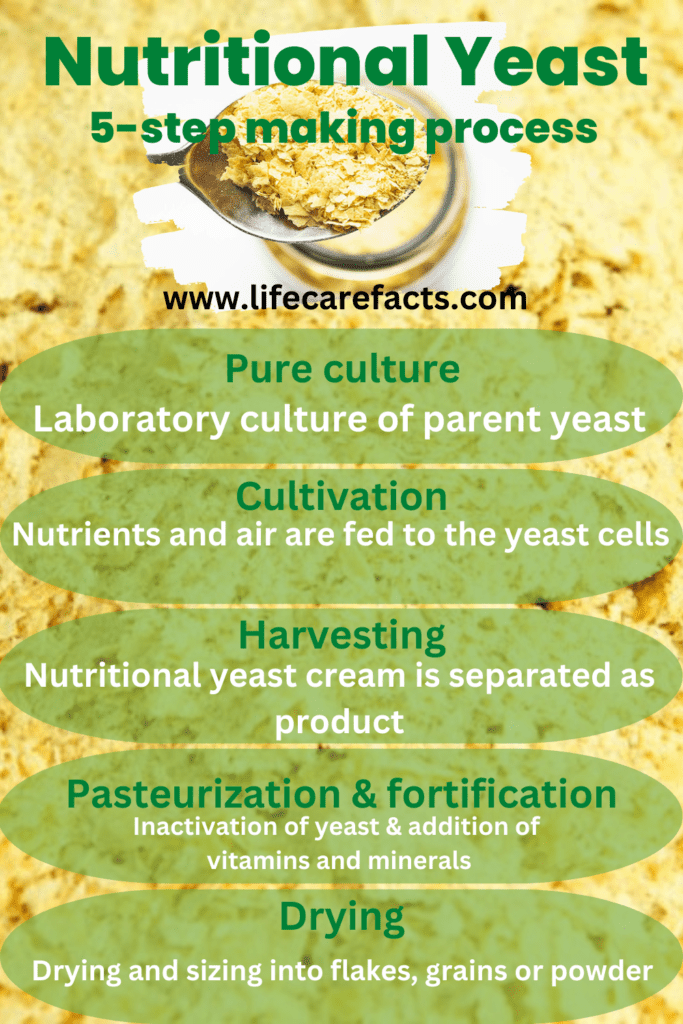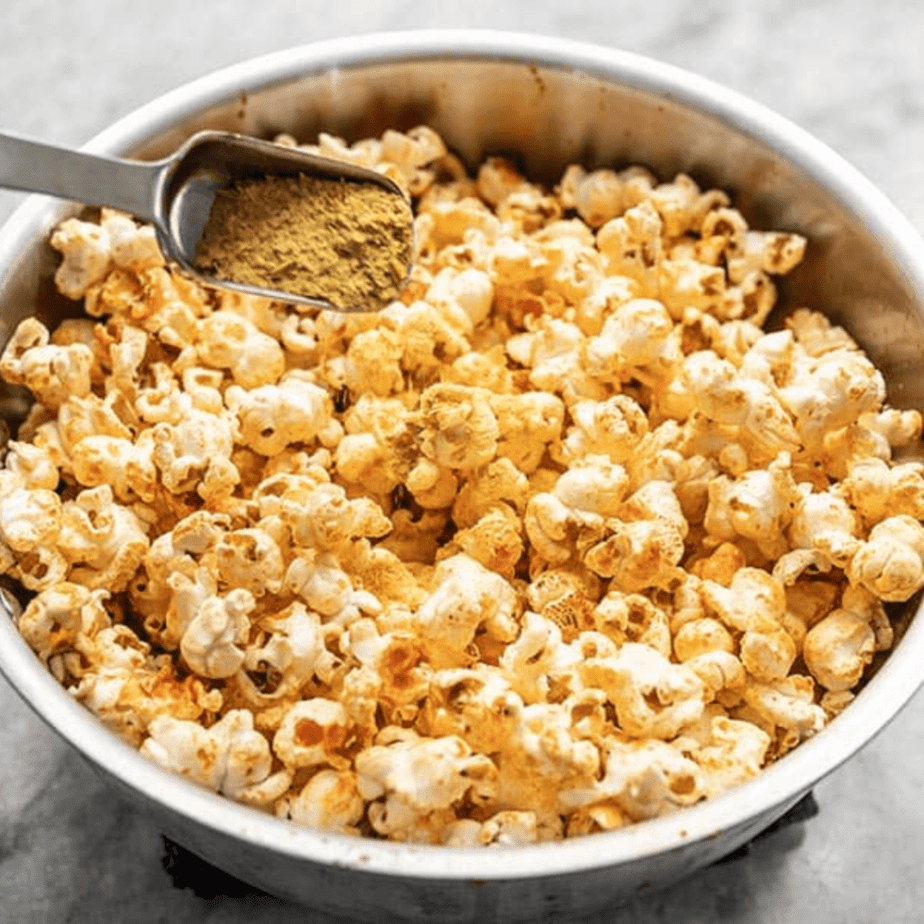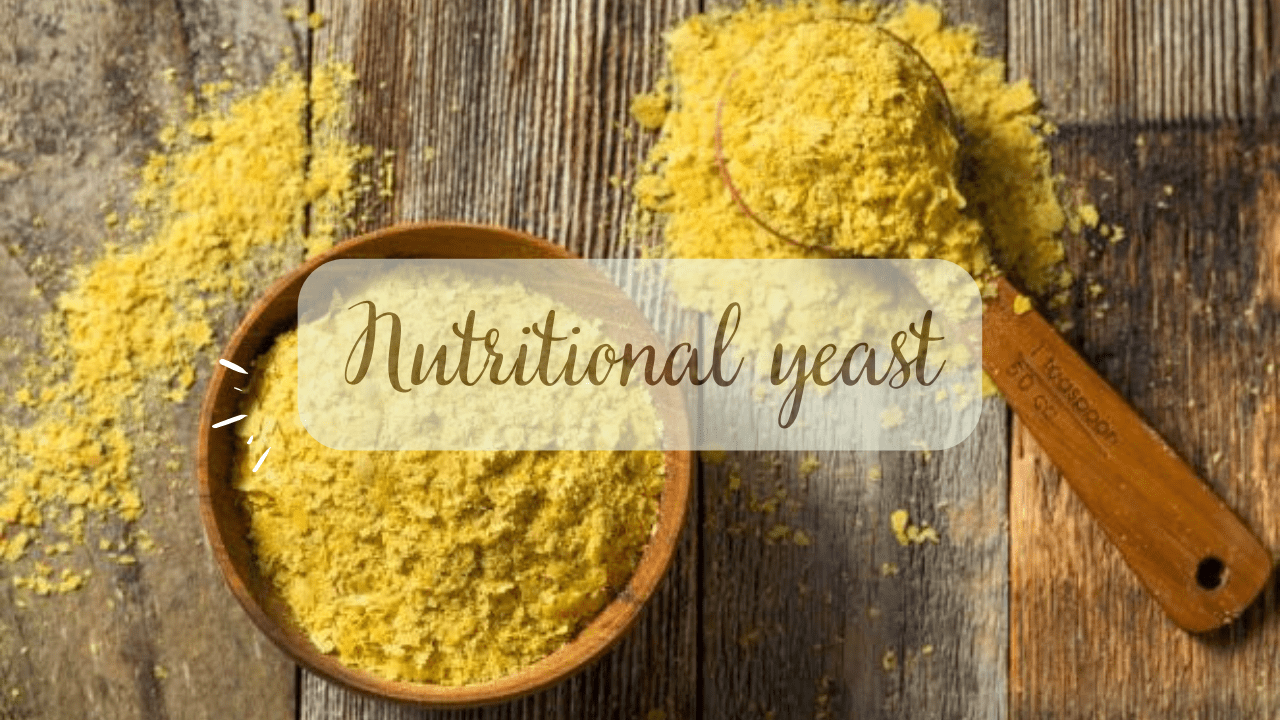Nutritional yeast is a deactivated and dried form of yeast with several health benefits due to its nutritional content.
What is Nutritional Yeast good for?
Nutritional yeast contains all of the essential amino acids, which are used to make proteins, body tissue, hormones, and neurotransmitters. It is a complete protein. It is a vegan source.
Nutritional yeast is high in vitamin B, including folic acid, as well as protein, iron, and potassium, and it’s low in sodium, saturated fat, and sugar, making it an excellent source of nutrition.
Nutritional yeast contains all of the essential amino acids, which are building blocks for proteins, body tissue, hormones, and neurotransmitters. It is a complete protein. It is a vegan source.
It’s high in B vitamins, including folic acid, as well as protein, iron, and potassium, and it’s low in sodium, saturated fat, and sugar, making it an excellent source of nutrition.
Baker’s Yeast Vs. Nutritional Yeast
Nutritional yeast is not the same thing as baker’s or brewer’s yeast. There is a significant difference between brewer’s yeast and nutritional yeast.
Brewer’s yeast is formed as a byproduct of beer making. It is used in making bread. Brewer’s yeast has less nutritional value than nutritional yeast and is activated for leavening, bread, and other bakery products.
Nutritional yeast is usually deactivated during processing, meaning it would not have the leavening effect in bread baking.
The process of making nutritional yeast
The process begins with the sterile growth of a pure parent yeast culture, Saccharomyces cerevisiae. The yeast is eventually transferred to a container where it will be cultivated.
The yeast temperature and PH are carefully controlled during the cultivation process. In order to create optimal growing conditions, the yeast is given a combination of nutrients and air.

Then, the fermented yeast liquid is centrifuged, which concentrates and thoroughly washes the yeast cells. As a result, an off-white liquid known as “nutritional yeast cream” is produced.
The cream is then pasteurized, which kills the yeast or inactivates it. This is typically the point at which fortification, such as the addition of vitamin B12, occurs.
After fortification, the yeast is dried and sized into flakes, powder, or granules.
Nutritional yeast content and health benefits
Vitamin B
All B vitamins are extremely beneficial, especially when consumed in their natural form.
Vitamin B1: It relieves stress and boosts energy.
Vitamins B2 and B3 are both beneficial to the skin. They aid digestion. Furthermore, they promote healthy hair and nails.
Niacin (vitamin B3): It is found in nutritional yeast and is frequently used to treat chronic acne and improve overall skin health. According to new research, it may even help prevent some types of skin cancer.
Doctors often advise pregnant women to take vitamin B supplements such as thiamine, riboflavin, vitamin B6, and folate, all of which are found in nutritional yeast.
These vitamins are important for cell metabolism, mood regulation, nerve function, and other processes, as well as for a healthy pregnancy. Folate and nutritional yeast are especially important for pregnant women.
Normally, nutritional yeast does not contain B12. Vitamin B12 is very important because it makes your blood stronger and helps your body use energy, among other things. So, you can tell the difference between natural and fake nutritional yeast by looking at the package and making sure that the B12 is in the form of methylcobalamin and not cyanocobalamin.
Nutritional yeast has a lot of B vitamins, including B12, which all help keep your hair, skin, and nails healthy if you don’t eat meat or dairy, and you don’t get enough from fortified products alone.
The amount of B12 you need depends on age, but as an adult, it’s recommended that you get at least 2.4 micrograms a day.
Studies show that biotin in particular supports healthy hair, skin, and nails. Nutritional yeast is a complete protein and has at least 9 of the 18 amino acids that our bodies can’t make on their own. By creating the amino acids that produce a form of keratin, a protein that actually makes up our hair and nails.
Proteins
To stay energized and healthy, we require a sufficient amount of protein.
Nutritional yeast is a complete protein and has at least 9 of the 18 amino acids that our bodies can’t make on their own. This makes it one of the best vegan protein sources on the market.
Protein deficiency can cause muscle mass loss, slowed metabolism, mood swings, muscle pain and fatigue, blood sugar fluctuations, and impaired immunity.
When nutritional yeast is consumed alongside other high-protein foods, it can boost protein intake and ensure that you get enough protein to meet your daily requirements.
The average man needs 56 grams of protein per day, while the average woman needs 46 grams.
Minerals
Nutritional yeast contains minerals such as potassium, magnesium, calcium, zinc, and phosphorus, all of which benefit you in different ways.
Because nutritional yeast contains a high concentration of minerals like iron, it is especially beneficial for athletes who train more than 4 hours per week because it can help prevent iron deficiency.
Phosphorus is the nervous system’s accelerator. So, if you’re tired, phosphorus can provide you with energy.
Trace Minerals
Trace minerals like chromium, selenium, zinc, etc., serve as cofactors in enzymes. And enzymes perform various functions in our body.
So trace minerals are good for hair, nails, skin, muscles, and anything with protein.
Nutritional yeast also contains selenium, which plays a role in the immune system by producing proteins that repair cell damage.
Zinc aids in tissue repair, wound healing, and the maintenance of our senses of taste and smell.
Molybdenum is a trace mineral that allows the liver to detoxify chemicals.
Amino Acids
Nutritional yeast contains an extensive amino acid profile. Nutritional yeast is composed of 50% amino acids by weight. That is actually greater than the majority of protein sources available.
Fibers
The fibers in nutritional yeast nourish microorganisms in the gut, which can then produce butyric acid. As a result, butyric acid may help you manage your blood sugar because it decreases insulin resistance.
Glutathione
As a highly effective antioxidant, it helps prevent oxidation in various body tissues. Actually, your body can create it, or you can obtain it from certain foods. Therefore, this helps to neutralize the damage caused by free radicals.
Beta-glucan
It not only helps to regulate cholesterol, but it also boosts your immune system and protects you from viruses and bacteria.
How to eat Nutritional Yeast?
Nutritional yeast can be eaten warm or cold, and because it does not have a raw or cooked state, cooking it will not change its flavor or texture.
Nutritional yeast can be simply added to soups and used as a natural thickener in a variety of sauces. You can also sprinkle it onto popcorn or homemade vegetable crisps to add flavor.

The most common use of Nutritional Yeast
You can develop your own nutritional yeast recipes.
There’s no preparation required for cooking with nutritional yeast. It comes as it is usually in a resealable bag or container.
Nutritionists advise using nutritional yeast in the amount of a tablespoon or a teaspoon a day.
It is a simple ingredient that’s used to give food staples like pasta, salads, oven-baked goods, and popcorn a cheesy tang.
It’s so popular with vegans as it’s fortified with vitamin B12 and has a nutty taste that enhances the overall savoriness of the dish.
Cooking with nutritional yeast may include making nutritional yeast pasta or other recipes using nutritional yeast. nutritional yeast tofu, nutritional yeast salad dressing, or vegan mac and cheese with nutritional yeast.
One of the most popular uses of nutritional yeast is as a vegan cheese substitute. You can create a vegan cheese sauce or an actual cheese-like block of vegan cheese.
Alternatively, nutritional yeast mac and cheese may enhance the flavor.
A popular vegan version of cheese is made with raw cashews, nutritional yeast, coconut oil, and other ingredients such as lemon juice, soy sauce, tomato paste, and seasonings.
If you follow the recipe correctly, you’ll be able to benefit from a very realistic nondairy wedge of cheddar cheese to use whenever the cheese cravings strike.
Here’s a short video on how to use nutritional yeast. Have a look.
Storage and Use
Keep in a cool and dry place. Nutritional yeast can last more than a year if properly stored in a sealed container in a dark place.
Health benefits of Nutritional Yeast
It may be effective in common cold and flu treatments.
Nutritional yeast has even been shown to be effective in the treatment of common colds and flu.
A recent study discovered that the beta-glucan fiber content of nutritional yeast helps to maintain our body’s defense against pathogens. The number of recurring infections with common colds was reduced by 25% in study participants who ate about a spoonful of nutritional yeast a day, and they had fewer cold-related sleeping difficulties when they did get sick.
A good nutritional option for a vegan diet
If you’re a vegan or a vegetarian, you’re at a higher risk of B12 deficiency, as the vitamin is found largely in animal products and other fortified foods like non-dairy milk and cereals. Getting your daily dose of nutritional yeast as a vegan will ensure your B12 levels never fall too low.
A digestive benefit of nutritional yeast relates to anyone who suffers from the symptoms of lactose intolerance, as nutritional yeast is completely lactose-free.
May fight microbial infections
Six antiviral and antibacterial nutritional yeasts have proved to be the best remedies for chronic candida symptoms, a specific type of yeast infection. Thanks to its antiviral and antibacterial properties. It has also been shown to have profound effects on E. coli, Salmonella, and Staphylococcus.
May help balance folate levels in pregnant women.
It’s been found to help reduce the risk of birth defects and promote healthy fetal growth and development. Studies have shown that women who have low levels of folate during pregnancy may experience issues with preterm delivery, low birth weight, neural tube defects, and hindered growth of their babies.
Encourages DNA synthesis
Nutritional yeast encourages DNA synthesis. A majority of nutritional yeast is fortified with a healthy quantity of vitamin B12, an important water-soluble vitamin that we need for DNA synthesis, red blood cell production, and maintaining the health of our nervous system.
Improves Digestion
A number of recent studies have shown that nutritional yeast is very good for the digestive system. Probiotics and nutritional yeast are thought to effectively treat diarrhea.
Side Effects of Nutritional Yeast
Are there any side effects of eating nutritional yeast? Despite the several benefits of nutritional yeast, like most superfoods, it also comes with some side effects, which we must be aware of.
Nutritional yeast is low in calories but packed with fiber, which means if you consume too much of it at once, you might experience some abdominal discomfort like bloating and diarrhea.
Your stomach should be just fine as long as you eat a lot of it.
In fact, two tablespoons of nutritional yeast flakes provide about 5 grams of dietary fiber, which is just over 20% of your daily intake.
Brand Suggestion


Urban Platter Nutritional Yeast Flakes
Conclusion
Nutritional Yeast has essential nutrients like vitamins, minerals, and proteins. Nutritional yeast can add a savory flavor to your dishes. Vegans can use it instead of cheese. You should try it once!
Frequently Asked Questions (FAQs)
Q1: Can nutritional yeast be used to bake bread?
A1: No. Nutritional yeast differs from yeast granules. Dry yeast has active yeast cells that leaven the bread while nutritional yeast is deactivated and cannot leaven up bakery products.
Q2: Do we get yeast infections if we consume nutritional yeast?
A1: No. That will not happen. It is true that some people may have an allergy to yeast, in which case they should avoid it.
Q3: Is nutritional yeast a version of MSG, or monosodium glutamate?
A3: No. Nutritional yeast do not contain MSG.
Q4: Why is “No-GMO” written on packets of nutritional yeast?
A4: No-GMO means that the nutritional yeast is not made from genetically modified organisms. It is natural.
Q5: Which Nutritional yeast should we buy, fortified or non-fortified?
A5: A lot of times, when you buy it, it is enriched with synthetic B vitamins. Doctors do not recommend any nutritional yeast that is enriched or fortified because they fortify it with synthetic chemicals. You should buy non-fortified nutritional yeast.
Thanks for reading my blog. I hope you must have gathered some new information. Comment your questions and thoughts below.


An interesting discussion is definitely worth a comment. Many thanks!!